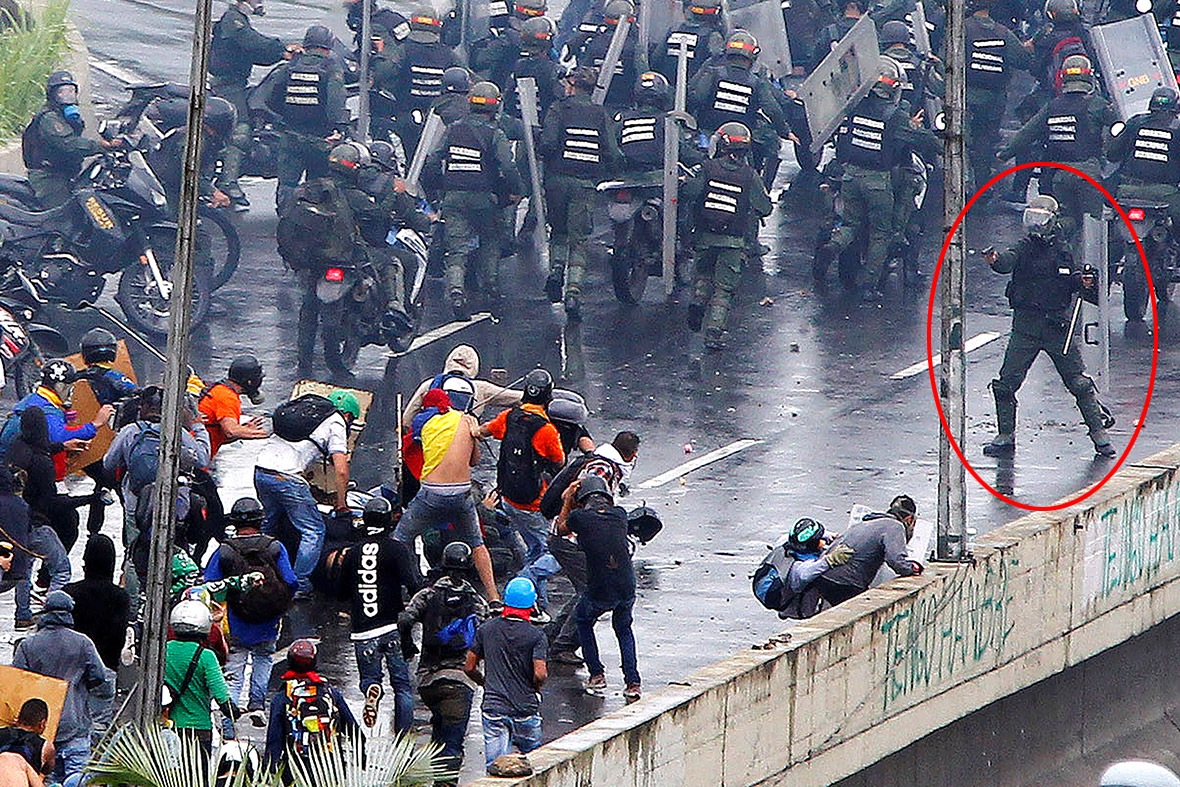Venezuela protest photos: Teenager Fabian Urbina shot and killed by security forces in Caracas
Fabian Urbina, 17, died of a gunshot wound after being shot in the chest by a member of the National Guard.
A 17-year-old anti-government demonstrator was shot and killed by security forces during another day of violent clashes in Caracas, Venezuela. The dead protester was named as Fabian Urbina, 17, who died of a gunshot wound after being shot in the chest, the local mayor said.
Photos show a member of the National Guard pointing what appears to be a pistol toward a crowd of protesters. The National Guard is a wing of the military tasked with public order. The head of the guard had said his men would never use "weapons of war" against protesters.



The police officer who was photographed firing into the crowd has been named on social media as Sergeant Raymon Avila. Other members of the National Guard were also seen shooting towards protesters. At least 27 protesters were injured, some of them were shot.



In a rare rebuke of the security forces that Maduro has been relying on to crush the protests, Interior Minister Nestor Reverol blamed excessive force by national guardsmen for the shootings, saying that troops who fired into the crowd would be held accountable.
Witnesses showed off bullet casings they said were found after the shooting.


About 10,000 protesters had filled the streets and arching flyovers of the city's wealthy east. Faced with security forces' water cannons and volleys of teargas, a deep line of protesters threw rocks, petrol bombs and powerful fireworks from behind crude wooden shields. Some marches have been smaller in recent weeks as violence has flared. But Monday's effort, matched by protests in several other parts of the country, demonstrated the movement still has momentum.









"Day 80 of the resistance, and the people are not tired. Today, it is clear to anybody who was worried that the street had died down that it is not the case," Freddy Guevara, a politician from the opposition Popular Will party, said at the protest.
The opposition accuses President Nicolas Maduro of dragging the oil-exporting country toward dictatorship by delaying elections, jailing opposition activists and pressing to overhaul the constitution. Maduro contends the protests are part of a foreign plot to topple his government, and points to arson attacks on public buildings as evidence of what he calls terrorism. Anti-government activists' anger has been fanned by shortages of food and medicines which have coincided with a spike in infant malnutrition and mortality.
At least 73 people have been killed since the protests began in April when the Supreme Court tried to usurp the powers of the opposition-controlled Congress. The opposition seeks to halt Maduro's plan to hold elections for a special assembly to rewrite the constitution on 30 July, a move the opposition says is aimed at undermining democracy.
© Copyright IBTimes 2025. All rights reserved.






















